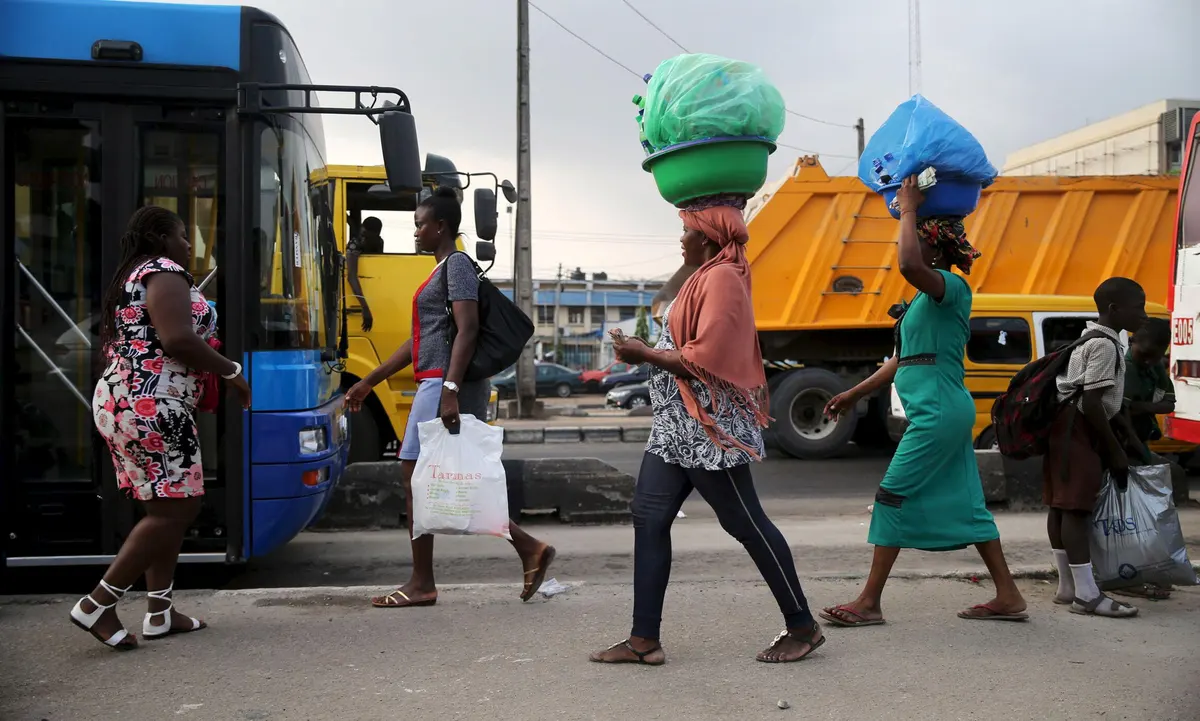In 2024, after the removal of fuel subsidies in Nigeria, commodity prices and the forex rate all skyrocketed. Life has become difficult for the common man on the street.
Imagine a bustling city where the rhythm of life is abruptly disrupted, and the streets echo the struggles of the common Nigerian. In this article, we dive into the aftermath of the removal of the fuel subsidy in Nigeria, exploring the week in the life of a Nigerian who embodies the challenges many face.
The Initial Shock
The removal of the fuel subsidy sent shockwaves through the nation. Overnight, commodity prices soared, leaving many struggling to afford necessities. Influenced by the economic turbulence, the forex rates added complexity to an already precarious situation.
Adapting to Change
Amidst the chaos, the common Nigerian resiliently adapted to the new normal. Drastic changes in lifestyle and spending habits became inevitable. Individuals explored alternative means of income, showcasing the resilience and resourcefulness inherent in the Nigerian spirit.
The Role of Government
The government’s actions were scrutinised as the common Nigerian grappled with the harsh realities. Policies and interventions were implemented, but public perception remained divided. Calls for a reconsideration of the subsidy removal echoed through the streets.
Economic Ripple Effects
The economic repercussions were not confined to individual households. Businesses faced unprecedented challenges, leading to job losses and increased unemployment rates. The social and psychological impact on the populace became evident, creating a ripple effect across all strata of society.
Narrating a Personal Experience
Meet Ade, an everyday Nigerian living in Ibadan, Oyo State, pushing through the tumultuous aftermath of the subsidy removal. Join Ade on a week-long journey that encapsulates the common Nigerian’s struggles, triumphs, and resilience.
Daily Struggles
Due to skyrocketing transportation costs, Ade’s daily commute became a test of endurance. Access to basic amenities became limited, and Ade juggled family needs amidst the ever-rising prices of goods and services.
Community Resilience
Despite the challenges, communities rallied together. Grassroots initiatives sprang up, demonstrating the strength of communal bonds in times of adversity. Ade found solace in the shared struggles and the support of neighbours.
International Perspectives
Beyond Nigeria’s borders, the subsidy removal drew attention globally—the international community observed with interest, offering potential foreign aid and assistance. Nigeria was repositioned in the international economic landscape, navigating challenges and opportunities.
A Call for Unity
In the face of adversity, a call for unity echoed. This section encourages solidarity among Nigerians, advocating for collective action to address challenges collectively. It explores the power of positive narratives to inspire change.
Looking Towards the Future
While challenges persist, there is hope. This section discusses potential solutions and reforms, emphasizing the role of sustainable development in mitigating economic shocks. It paints a picture of a brighter future built on resilience and innovation.
Dispelling common misconceptions surrounding subsidy removal, this section offers a balanced perspective on government decisions. It encourages informed discussions and a nuanced understanding of economic policies.
Amid economic uncertainties, the importance of financial literacy cannot be overstated. This section emphasizes its role in navigating challenges and promotes responsible financial practices to build individual and collective resilience.
Public Reaction and Advocacy
This section delves into public protests and demonstrations by examining the nation’s pulse. Voices of advocacy against subsidy removal are explored, evaluating the effectiveness of public pressure on policy decisions.
In summarizing the journey through a week in the life of a common Nigerian post-subsidy removal, it becomes evident that resilience, community, and unity are crucial in navigating challenging times. The impact on individuals and communities is profound, but there is room for hope and positive change through collective efforts.
General Questions
- Q: How has the removal of the fuel subsidy affected the average Nigerian’s daily life?
A: The removal has increased prices, affecting daily expenses and making life more challenging for many.
- Q: Are there any government initiatives in place to alleviate the economic burden on citizens?
A: The government has implemented policies, but public perception of their effectiveness varies.
- Q: How are communities coming together to support each other during these tough times?
A: Grassroots initiatives and communal bonds have strengthened, showcasing the resilience of communities.
- Q: What is the international community’s stance on Nigeria’s economic challenges?
A: The international community observes with interest and may offer potential aid and assistance.
- Q: What can individuals do to navigate these economic uncertainties?
A: Financial literacy is crucial; promoting responsible financial practices can build resilience on an individual and community level.











